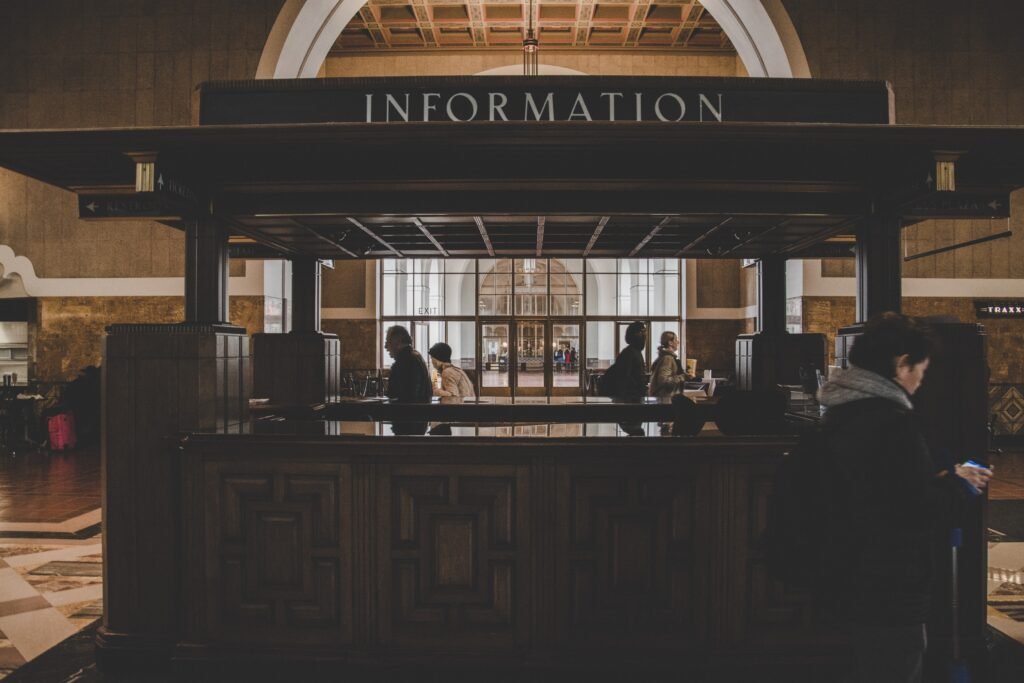If you’re a homeowner, it’s crucial to be aware of the process of foreclosure, as it can have significant implications on your property and financial well-being. Understanding the intricacies of foreclosure can help you navigate this challenging situation with confidence and make informed decisions. From the initial stages to the potential outcomes, this article will provide you with a comprehensive overview of the foreclosure process, ensuring that you have the knowledge you need to protect your interests and explore available options.

The Meaning of Foreclosure
Definition of foreclosure
Foreclosure is a legal process by which a lender, usually a bank or a mortgage company, takes possession of a property when the borrower fails to make mortgage payments. It is a last resort for lenders to recover their funds when borrowers default on their loans.
Reasons for foreclosure
There are various reasons why homeowners may face foreclosure. These include financial difficulties, such as job loss, medical expenses, or an unexpected decrease in income. Other reasons may include bad financial planning, high levels of debt, or predatory lending practices. Ultimately, it is a situation that no homeowner wants to find themselves in.
Types of foreclosure
There are different types of foreclosure, each with its own legal process. The most common types are judicial foreclosure and non-judicial foreclosure. Judicial foreclosure requires the lender to go through the court system to obtain permission to auction off the property. Non-judicial foreclosure, on the other hand, allows the lender to follow a set of procedures outlined in the mortgage or deed of trust.
Implications of foreclosure
Foreclosure has significant implications for homeowners. It not only results in the loss of their home but also has long-lasting effects on their credit score. Additionally, foreclosure can lead to eviction, emotional distress, and a disruption in the lives of the homeowners and their families. It is crucial for homeowners to understand the gravity of foreclosure and take steps to prevent it.
Understanding Mortgage Payments
Definition of a mortgage
A mortgage is a loan provided by a lender to finance the purchase of a property. It is a legal agreement in which the homeowner (borrower) pledges the property as collateral to secure the loan. The mortgage is typically repaid over a long period, often 15 to 30 years, in the form of regular payments.
Components of a mortgage payment
A mortgage payment consists of several components. The primary components are the principal, interest, taxes, and insurance (often referred to as PITI). The principal is the amount borrowed, while the interest is the cost of borrowing the money. Taxes refer to property taxes, and insurance includes homeowners insurance and potentially private mortgage insurance (PMI) if the down payment is less than 20%.
How mortgage payments work
Mortgage payments are typically made on a monthly basis and remain the same throughout the loan term, assuming a fixed-rate mortgage. The payments are designed to pay off both the principal and interest over time. As the loan progresses, the portion of the payment allocated to principal gradually increases, while the portion for interest decreases. This gradual shift builds equity in the property for the homeowner.
Consequences of missed mortgage payments
Missing mortgage payments can have severe consequences for homeowners. It can result in late fees, penalties, and interest charges. Moreover, missed payments can lead to the initiation of the foreclosure process by the lender. To avoid foreclosure, it is essential for homeowners to prioritize making their mortgage payments on time and seek assistance if they are facing financial difficulties.

The Foreclosure Timeline
Notice of Default (NOD)
The foreclosure process typically begins with a Notice of Default (NOD) issued by the lender. The NOD informs the homeowner that they have defaulted on their mortgage payment and specifies the amount owed. This notice provides the homeowner with a specific period, often 30 to 90 days, to bring their payments up to date and avoid further action.
Notice of Trustee’s Sale
If the homeowner fails to cure the default within the specified period mentioned in the NOD, the lender may proceed to issue a Notice of Trustee’s Sale. This notice announces the lender’s intent to sell the property at a public auction. The homeowner is given a specific timeframe, typically 21 to 30 days, to take action and prevent the sale.
Trustee’s Sale
The Trustee’s Sale is the actual public auction where the property is sold to the highest bidder. It takes place after the expiration of the Notice of Trustee’s Sale. The property is sold as-is, and the highest bidder becomes the new owner. The proceeds from the sale are used to repay the outstanding debt, including any fees, penalties, and legal expenses.
Real Estate Owned (REO)
If the property fails to sell at the Trustee’s Sale, it becomes Real Estate Owned (REO). In this scenario, the lender gains ownership of the property and becomes responsible for its maintenance and disposition. The property may be listed for sale as an REO by the lender or transferred to an asset management company to handle the sale. The lender aims to recoup its losses through the sale of the property.
Factors Affecting Foreclosure Timeline
State-specific foreclosure laws
Foreclosure laws vary from state to state, and these laws significantly impact the timeline of the foreclosure process. Some states have lengthy and complex procedures, while others have streamlined processes that expedite the foreclosure timeline. It is essential for homeowners to familiarize themselves with the foreclosure laws specific to their state.
The loan provider’s responses
The actions and responses of the loan provider can also significantly affect the foreclosure timeline. Some lenders may prioritize foreclosure and initiate the process immediately after a default, while others may be more willing to work with homeowners to find alternative solutions. It is crucial for homeowners to communicate with their lender and explore options for foreclosure prevention.
Bankruptcy and foreclosure
Filing for bankruptcy can provide temporary relief to homeowners facing foreclosure. When bankruptcy is filed, an automatic stay is initiated, temporarily halting the foreclosure process. However, bankruptcy is not a permanent solution, and homeowners must work towards resolving their financial issues. While bankruptcy may delay foreclosure, it may not prevent it altogether.

Foreclosure Prevention Methods
Efficient financial planning
One of the key steps to prevent foreclosure is efficient financial planning. This involves creating a budget, prioritizing mortgage payments, and managing debts responsibly. Homeowners should closely examine their income and expenses to ensure that they can afford their mortgage payments. By practicing mindful financial planning, homeowners can avoid falling into a situation where foreclosure becomes a possibility.
Communication with lender
Effective communication with the lender is crucial in preventing foreclosure. If homeowners are facing financial difficulties, it is essential to inform the lender promptly. Many lenders have foreclosure prevention programs or loan modification options that can provide temporary relief. Open and honest communication can lead to potential solutions that can help homeowners stay in their homes.
Loan modification
A loan modification is a change made to the terms of the mortgage loan to make it more affordable for the homeowner. This may involve reducing the interest rate, extending the loan term, or adjusting the monthly payment amount. Loan modifications can be a useful tool for homeowners to avoid foreclosure and make their mortgage payments more manageable.
Refinancing
Refinancing involves replacing the current mortgage loan with a new loan that offers better terms or a lower interest rate. By refinancing, homeowners can potentially lower their monthly mortgage payments and reduce their financial burden. However, it is important to consider the costs associated with refinancing and weigh the benefits against the potential risks.
Short sale
A short sale occurs when the homeowner sells the property for less than the amount owed on the mortgage. The lender agrees to accept the sale proceeds as full satisfaction of the debt, effectively releasing the homeowner from any further obligation. While a short sale results in the loss of the property, it is a way for homeowners to avoid foreclosure and minimize the impact on their credit score.
Deed in lieu of foreclosure
A deed in lieu of foreclosure is an agreement between the homeowner and the lender in which the homeowner voluntarily transfers ownership of the property to the lender to satisfy the mortgage debt. This option allows homeowners to avoid foreclosure and the associated legal proceedings. However, homeowners should be aware that a deed in lieu of foreclosure may still have negative consequences on their credit.
The Remedies for Homeowners
Understanding homeowners’ rights
Homeowners have rights when facing foreclosure, and it is crucial to understand and assert these rights. These rights include the right to be notified of the foreclosure process, the right to cure the default, the right to be treated fairly by the lender, and the right to have a reasonable opportunity to save their home. By understanding these rights, homeowners can better navigate the foreclosure process and seek appropriate remedies.
Legal remedies
Homeowners facing foreclosure may seek legal remedies to protect their rights and interests. Hiring a foreclosure attorney can provide homeowners with valuable guidance and representation throughout the process. Attorneys can review the homeowner’s situation, negotiate with the lender, and explore legal options that can potentially halt or delay the foreclosure proceedings.
Government aids
The government offers various aids and programs to assist homeowners facing foreclosure. These include loan modification programs, refinancing options, and assistance for homeowners with financial hardships. It is essential for homeowners to research and reach out to their local government or housing agencies to explore the available options and determine their eligibility for assistance.
Nonprofit organizations support
Nonprofit organizations dedicated to foreclosure prevention can provide valuable resources and support to homeowners. These organizations offer counseling services, financial education programs, and access to foreclosure prevention assistance. Homeowners in distress should reach out to reputable nonprofits in their area to seek guidance and support during this challenging time.
The Impact of Foreclosure on Credit
Length of time foreclosure stays on the credit report
Foreclosure can have a significant impact on a homeowner’s credit report. The length of time a foreclosure stays on the credit report can vary, but typically it remains for up to seven years. This negative mark can make it challenging for homeowners to obtain new credit, secure rental housing, or even find employment. It is essential for homeowners to take steps to rebuild their credit after a foreclosure.
Effects on credit score
Foreclosure has a detrimental effect on a homeowner’s credit score. It can cause a significant drop in the credit score, making it more challenging to secure future credit at favorable terms. The impact on credit scores can vary depending on the individual’s overall credit history, but it is typically a severe blow. Taking proactive steps to repair credit after foreclosure is essential to regain financial stability.
Repairing credit after foreclosure
While foreclosure can have lasting effects on credit, there are steps homeowners can take to repair their credit over time. This includes consistently making payments on time, reducing overall debt, and practicing responsible financial habits. Additionally, homeowners can work with credit counseling agencies or credit repair services that specialize in helping individuals rebuild their credit scores.
Life After Foreclosure
Renting after foreclosure
After experiencing foreclosure, homeowners may need to seek alternative housing options. Renting becomes a viable choice for many individuals as they work towards rebuilding their financial stability. It is important to note that the foreclosure may impact their rental prospects, as landlords may consider the foreclosure negatively. However, with time and a solid rental history, homeowners can eventually transition into more desirable housing situations.
Purchasing a new home after foreclosure
While purchasing a new home immediately after foreclosure may be challenging, it is not impossible. Homeowners can take steps to improve their credit and demonstrate financial responsibility. Saving for a down payment and working to improve their credit score are essential for increasing their chances of securing a mortgage in the future. With patience and persistence, homeowners can eventually achieve homeownership once again.
Personal growth and financial literacy
Experiencing foreclosure can be a difficult and emotionally challenging time. However, it can also serve as an opportunity for personal growth and financial literacy. Homeowners can use this experience as a motivation to become more financially literate and make better decisions in the future. By learning from past mistakes and adopting healthier financial habits, individuals can build a more secure and stable future.
Learning from the foreclosure experience
Foreclosure can be a harsh wake-up call for homeowners, prompting them to re-evaluate their financial choices and priorities. It is essential for individuals to reflect on the causes of the foreclosure and identify areas for improvement. By learning from the foreclosure experience, homeowners can make more informed decisions in the future and take proactive steps to prevent similar situations from occurring again.
Role of A Foreclosure Attorney
When to hire a foreclosure attorney
Hiring a foreclosure attorney can be a crucial step for homeowners facing the foreclosure process. It is recommended to consult with an attorney as soon as possible after receiving a Notice of Default or any legal notice related to foreclosure. The attorney can provide guidance, explain legal rights and options, and help homeowners navigate the complex legal procedures involved in foreclosure.
What tasks a foreclosure attorney can handle
A foreclosure attorney can handle various tasks on behalf of homeowners. This includes reviewing the foreclosure documents and ensuring their accuracy, negotiating with the lender for possible alternatives to foreclosure, representing the homeowner in court if necessary, and providing legal counsel throughout the foreclosure process. The attorney’s expertise can significantly benefit homeowners by protecting their rights and advocating for their best interests.
Choosing the right foreclosure attorney
Choosing the right foreclosure attorney is a crucial decision for homeowners. It is important to seek an attorney with expertise in foreclosure law and a track record of successfully representing clients in similar cases. Homeowners should consider factors such as experience, reputation, fees, and communication style when selecting an attorney. A good attorney-client relationship based on trust and open communication is essential for navigating the complexities of foreclosure.
Foreclosures and The Economic Climate
Foreclosure trends over the years
Foreclosures have been a significant issue in the housing market, with trends varying over the years. The number of foreclosures tends to be influenced by economic factors such as unemployment rates, interest rates, and housing market conditions. The foreclosure trends can fluctuate, often peaking during economic downturns and stabilizing during periods of economic recovery.
How economic downturns influence foreclosures
Economic downturns, such as recessions or financial crises, can have a significant impact on foreclosure rates. Job losses, reduced income levels, and a decrease in home values can create financial hardships for homeowners, leading to an increase in foreclosures. During economic downturns, it is crucial for homeowners to be proactive in seeking assistance and exploring foreclosure prevention options.
The effect of foreclosures on the housing market
Foreclosures can have a wide-ranging effect on the housing market. The increased supply of foreclosed properties can lead to a decrease in home values in the local market. This can impact neighboring properties and contribute to a general decline in property values. Moreover, the presence of foreclosures can create instability and uncertainty in the housing market, affecting both buyers and sellers.
Foreclosure crisis and government intervention
The foreclosure crisis of the late 2000s led to significant government intervention to stabilize the housing market and assist homeowners. Various programs and initiatives were implemented to prevent foreclosures, such as the Home Affordable Modification Program (HAMP) and the Making Home Affordable program. These initiatives aimed to provide relief to struggling homeowners and stimulate the housing market’s recovery.
In conclusion, understanding the process of foreclosure and its implications is essential for homeowners who find themselves facing financial difficulties. By familiarizing themselves with the foreclosure timeline, prevention methods, and available remedies, homeowners can take proactive steps to protect their homes and financial interests. Whether through efficient financial planning, open communication with lenders, or seeking legal guidance, homeowners have options to navigate the challenging circumstances of foreclosure. Furthermore, by learning from the experience, homeowners can grow personally and financially, setting themselves on a path to a secure and stable future.
